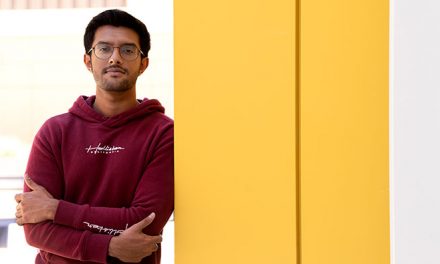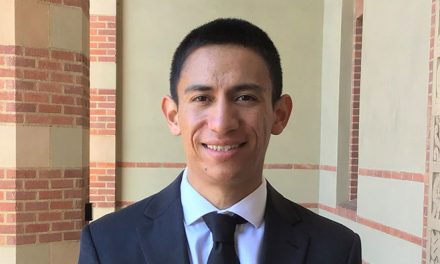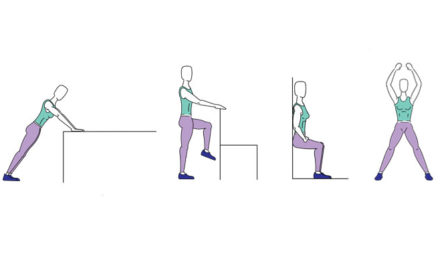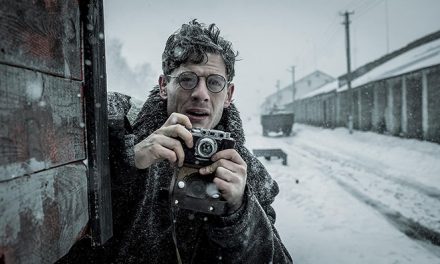A two-lane county road that cuts through open fields and orchards, passes industrial warehouses and bends over the Sacramento River connects Davis to Knights Landing, California. Signs advertising tomatoes, watermelon and garlic are clustered next to the reflective green highway sign that reads “Knights Landing. Pop 995. Elev. 48.”
Located about 20 miles from UC Davis, the unincorporated agricultural community of Knights Landing feels a world away from the university. It is home to a community that is predominantly “Hispanic” or Latina/o, has a high school education or less and where 16 percent live below the poverty level. More than 40 percent of its residents work in the agricultural industry, with an estimated 20,500 Mexican migrant and seasonal farm workers and their families living there and in surrounding areas.
“To me Knights Landing represents the community that is like many other communities in the Central Valley,” said UC Davis graduate student Alfonso Aranda. “It is characterized by institutional racism, industrial agriculture, patterns of transnational migration, environmental exposures and lack of access to safe drinking water. Despite the amount of wealth that is produced in those areas, it’s still relatively poor. In the academic literature it’s considered the other part of California.”
Yet a bourgeoning partnership between UC Davis and Knights Landing has been growing over the years.
UC Davis faculty, staff and students now offer much-needed medical and veterinary services to the underserved population through satellite clinics. These student-run clinics offer useful experience in their chosen fields. And more recently UC Davis students were instrumental in organizing and building a community garden there — to provide fresh fruits and vegetables in a community that is lacking even a grocery store.
Planting seeds for a healthy future
The Knight Landing Community Garden had its grand opening in November 2019. Twelve garden beds were installed on a side lot of the Knights Landing Community United Methodist Church
It has been years in the making.
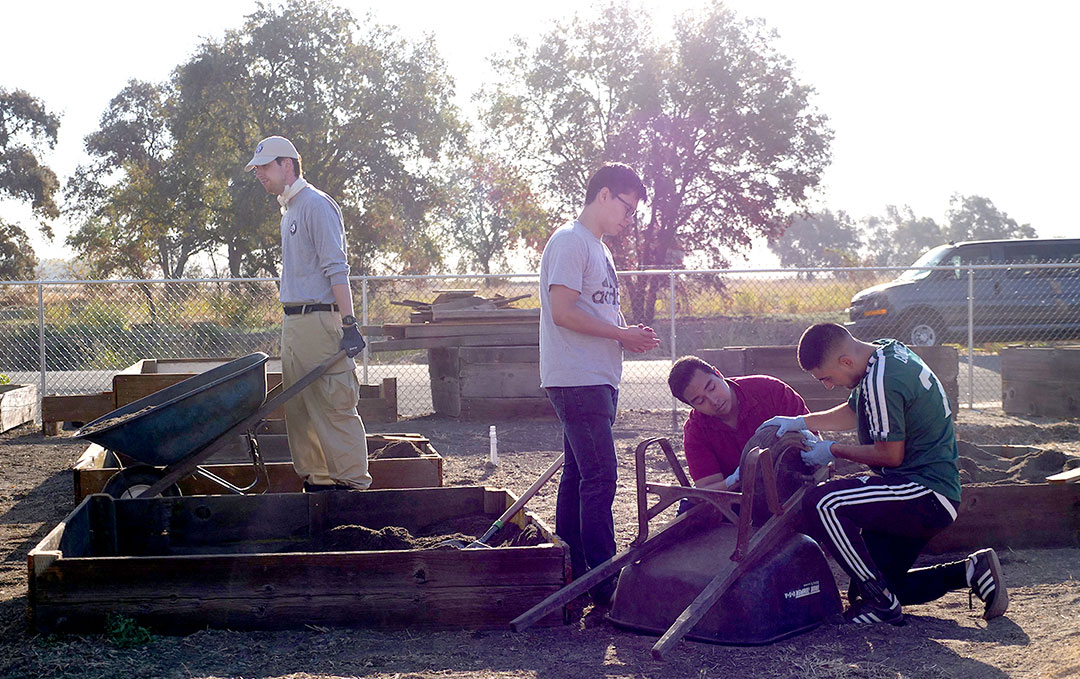
The community garden team begins building raised beds outside the Knights Landing Community United Methodist Church. (photo courtesy of Jonathan Ho)
In 2013, a group of Knight’s Landing youth called Pueblo Unido came up with the idea of a community garden, but lack of funding prevented the project from getting off the ground.
A community garden seemed like a perfect, sustainable solution to help improve the health and wellness of the community. But, before they got started, UC Davis students convened a focus group of Knights Landing residents to determine if a community garden was something they still wanted. The students were pleased to discover 90 percent of the 100-plus people who were interviewed said a community garden was a top priority for Knights Landing.
Inspired by this, a cohort of UC Davis graduate and undergraduate students — including Jacklyn “Skye” Kelty, Alfonso Aranda, Ana Maria and Jonathan Ho — got to work. Their backgrounds were in a wide range of disciplines, including biology, toxicology and pharmacology, health, geography, environmental sciences, landscape architecture, community planning and development, and more.
To get the garden going, they first had to pursue growing a different kind of green — money. They launched a crowdfunding campaign, applied for grants and scholarships, and even hosted community fundraisers in Knights Landing to support the project. To date, the group has raised over $50,000, including a recent $20,000 grant from the Yolo Health and Human Services Agency. Additionally, the Yolo County water district is providing free water and the Knights Landing Methodist Church provided the land for the garden. Altogether, more than 200 people have been involved with the project. Along the way, members of the Knights Landing community have been at the center.
“With this project, we’ve had community members as part of a team so they are constantly helping us check ourselves and understand that we do not come from this community and they know their needs better than anyone else,” Maria said. “Our goal is to be chameleons, of sorts—to really listen to the community and be attuned to what’s needed. Our role is to facilitate this project, but really have the community lead it.”
The 65-by-130 feet in size garden has 12 irrigated beds. The group hopes to begin planting in the spring. The long-term goal is to have community members maintain and sustain the project.
“This project would not have been possible without the community,” Ho said. “Without everyone’s support we would not be where we are today. This is a project that really needed the help and input from everyone to be successful.”
For the youth
The community of Knights Landing found an ally in UC Davis Associate Professor of Chicano/a Studies Natalia Deeb-Sossa, an activist scholar who investigates ways in which research can promote social change.
More than 10 years ago, she hosted a photography class for children of migrant farm workers and helped parents advocate against the closing of their only elementary school. Deeb-Sossa partnered with a group of predominantly Spanish-speaking women in Knights Landing — called Grupo de Mujeres — as one issue led to another.
They identified consistent access to health care as a pressing need for their community.
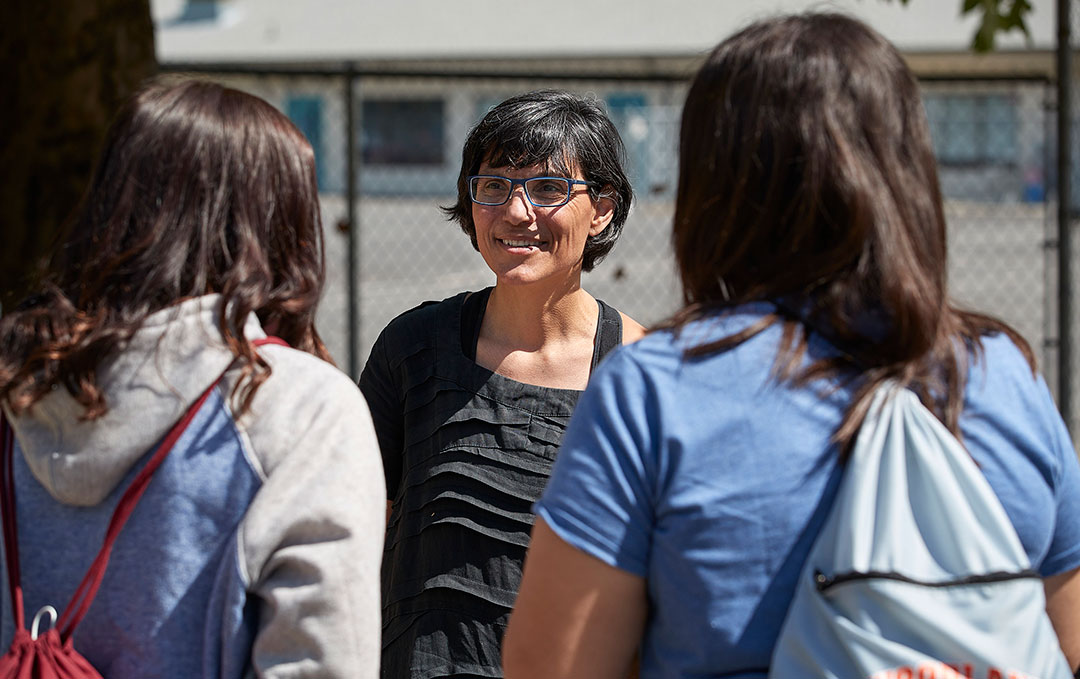
Associate professor of Chicana and Chicano studies Natalia Deeb-Sossa (Fred Greaves Photography)
In 2011, Deeb-Sossa, a trained sociologist, worked with UC Davis medical and undergraduate students to develop the Knights Landing Community Engagement Project. The project used a community-centered approach to advocate for the medically underserved within Knights Landing.
The team partnered with UC Davis School of Medicine’s Rural-PRIME, a program designed to produce physician leaders who are trained in and committed to helping California’s underserved communities. Their goal was to bring better health and wellness care to Knights Landing.
Soon, Empower Yolo and the California Rural Legal Assistance Foundation got involved. They worked with Clinica Tepati, the long-standing UC Davis student-run clinic, to open its first satellite clinic in Knights Landing. In January 2012, Knights Landing One Health Center opened its doors.
“It is the first UC Davis clinic that has a rural focus and is community engaged,” Deeb-Sossa said. “We are constantly talking with the community about what their needs are. We are always trying to improve the clinic based on what they say and the social determinates of health.”
Caring for patients with paws
Soon after the health clinic opened, services were expanded to include veterinary care in line with UC Davis’ One Health approach — to care for people, animals and the environment. The One Health clinic opened in 2014 making it the first veterinary clinic in Knights Landing.
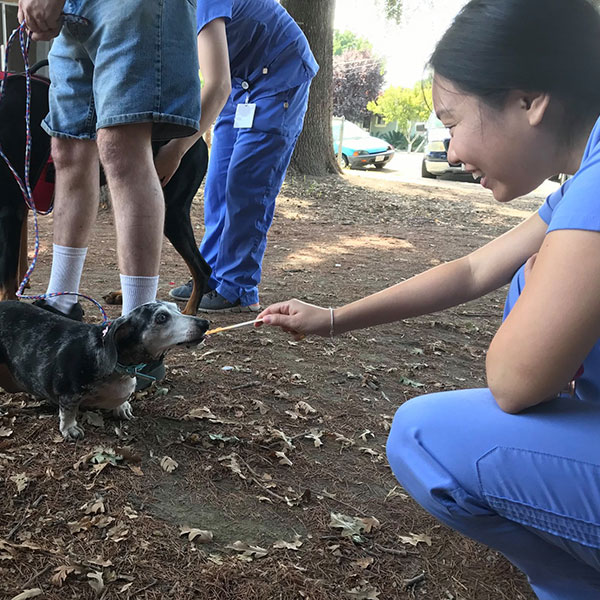
Veterinary students provide preventive animal health services, minor treatments and health education in Knights Landing.
Photo via Facebook
“We really love our clients,” Amber Robert, a former director of the student-run Knights Landing Clinic told UC Davis in 2016. “They love their animals, and they’re so thankful.”
The veterinary clinic mostly treats ear infections, respiratory diseases and skin issues; but the team of about 45 — including supervising veterinarians from UC Davis and undergraduate student volunteers — provides a range of services including physical exams, vaccinations and preventative treatments.
According to Deeb-Sossa, each partnership shows that consistency over time has made all the difference.
“In the past, faculty would go to Knights Landing or send students to do school projects and they would go, but then quickly leave. It left the community feeling like that kind of work was intrusive and they never saw the results or the benefits from that partnership,” Deeb-Sossa said. “So when I started working there, I had to gain their trust. I had to show them through my deeds, more than my words, that I was there to do the work and show up consistently. I was invited, so I never left.”
Deeb-Sossa continued, “Yes, public scholarship takes a huge amount of time, but the rewards are immense. I know that my research has a social justice purpose to it and I think that is very valuable—not just for me, but for the students and the community as well. And it is the mission of UC Davis as a land-grant institution.”
This story is part of a series by Public Scholarship and Engagement highlighting members of the UC Davis community whose research, teaching and learning serves society and makes a positive difference in the world.

